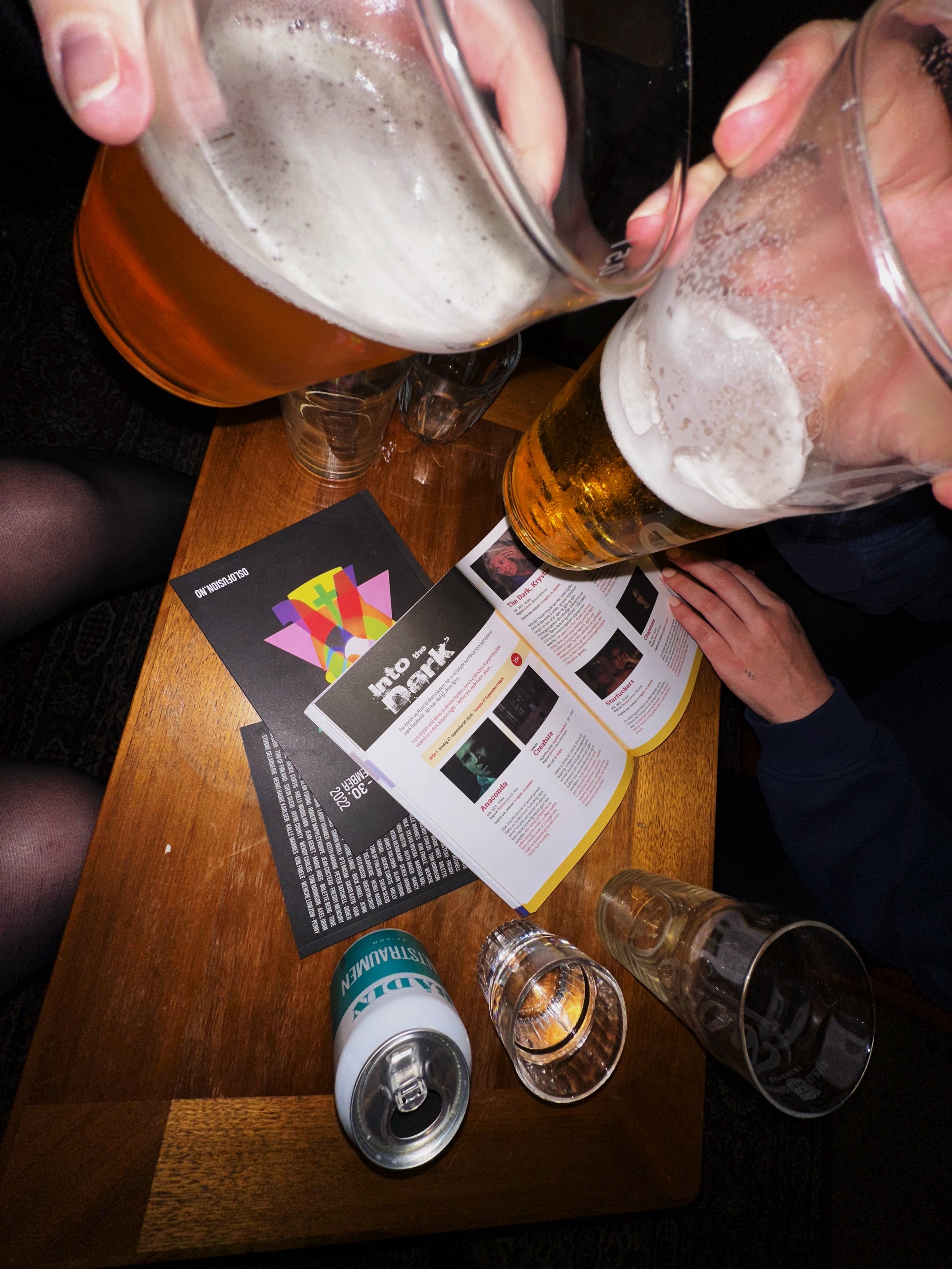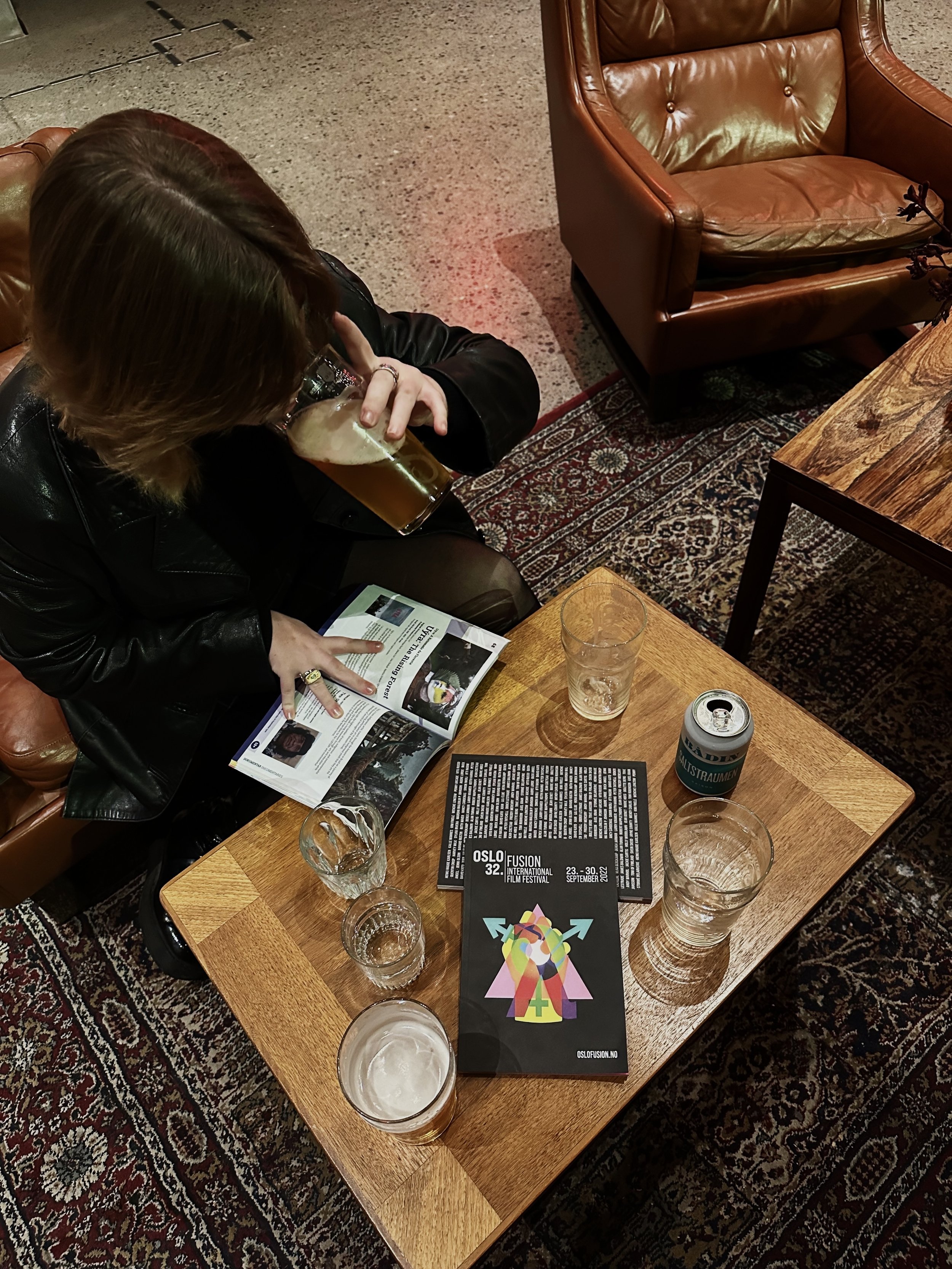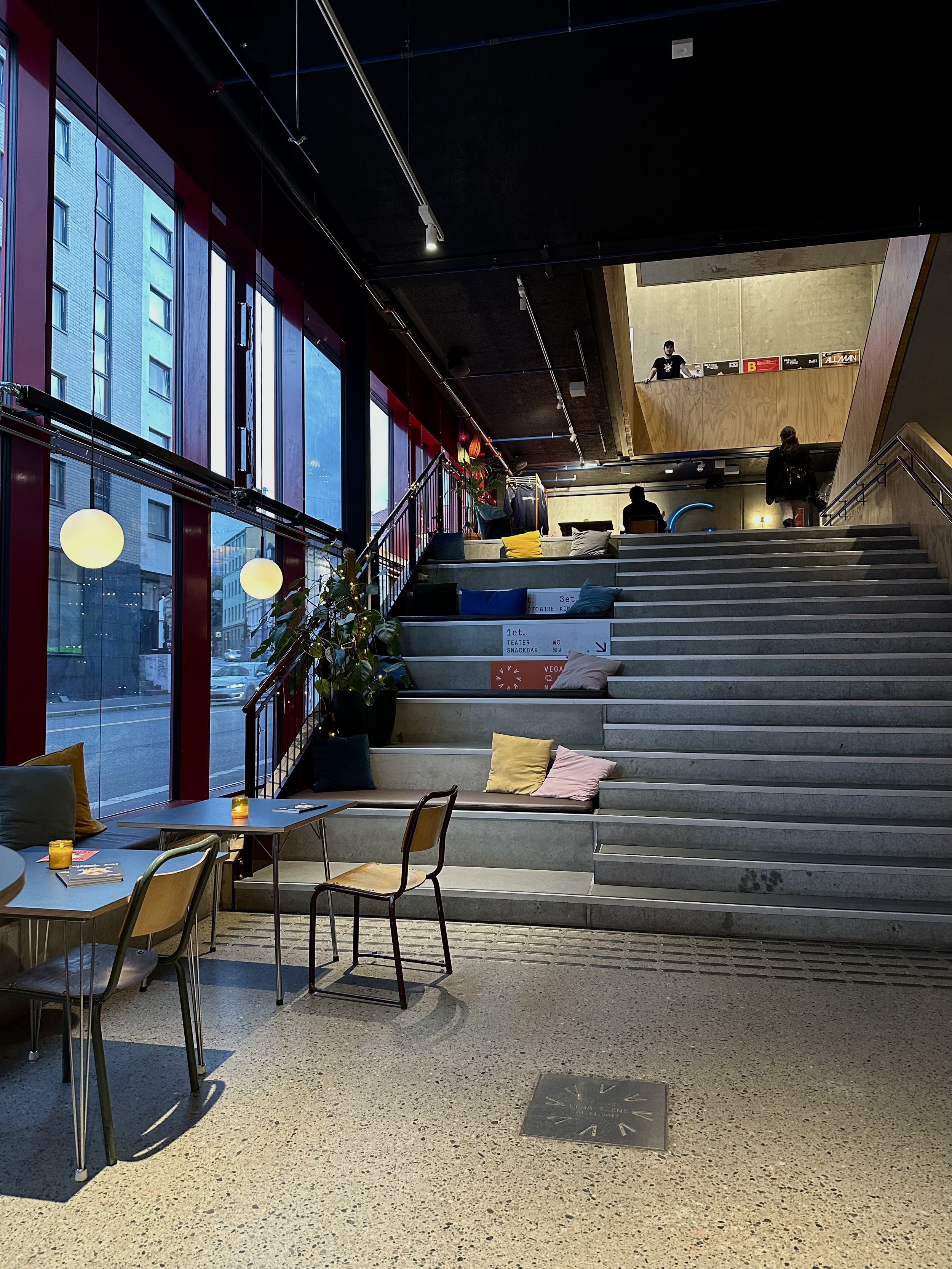Queer Horror shorts pack a punch at Oslo/Fusion
Photo: Fanny F. Oveergard / PRESSET.
Feature - Hanna Nes
Oslo/Fusion International Film Festival, “Norway's only film festival dedicated to stories of, by and for the LGBTQIA2S+ / QTIBIPOC community” (courtesy of the festival’s mandate on FilmFreeway), took over several locations across the city from September 23-30th. Celebrating the 50th anniversary of the country legalizing same-sex relations, a diverse selection of feature films, documentaries, short films and special presentations offered a bevy of entertaining and thought-provoking works to the public.
I was curious to check out the short film program, in particular “Into The Dark”, which curated works of the horror genre. A small but enthusiastic audience had gathered on a cold, damp September night for a program packed with creative queer horror, ready to laugh or scream at a moment’s notice. Prior to the screening, a festival representative introduced the evening’s theme, excitedly saying to the audience that “queer horror is going to be very big”. In a year that saw new releases from prestige horror directors including Jordan Peele, Robert Eggers, and Ti West, we knew we were in for a treat from emerging filmmakers. The creativity that flowed from the following shorts was unlike many things I’ve seen, melding together multiple niche genres to create something new. Oslo/Fusion’s festival programmers did a fantastic job picking films that ran the gamut of the genre, with selected shorts extending from campy body horror to abstract psychological slow burns. There was truly something for everyone.
I found myself laughing out loud during the ridiculous, camp collage that was Michael Robinson’s The Dark, Krystle, a riotous re-imagining of 80s television juggernaut Dynasty. Cutting and re-purposing clips from the iconic show, the short worked as a commentary on material excess, feminism and identity. Dozens and dozens of clips of Joan Collins taking a sip from her cocktail glass gained a new, unsettling meaning as they were collaged over one another as loud 80s power synths drowned the room. An understated Zachary Quinto (Spock in the Star Trek reboots) appeared as a leather clad figure who picks up a young man in the somber Chaperone, by American writer/director Sam Max. The nature of their relationship is unclear at first but slowly settles into a harrowing reminder of the mental health struggles and isolation many LGBTQIA+ youth experience. The piece left me feeling quite shaken by the tragedy displayed on screen.
My personal favorite was the Lynchian Starfuckers, written/directed/starring the phenomenally talented Antonio Marziale, who deftly balances comedy, suspense and grief in this unforgettable piece. Following a date between an escort and his high-power Hollywood client, the night takes a sudden turn when revenge comes into the picture. Marziale is a force to reckon with, staring down the camera in the final close up shot as if he’s daring the audience to question the lengths to which his character goes to have a final say against the man who’s taken advantage of him. Anaconda, a terrifying psychological horror about revenge-porn and surveillance, struck absolute fear into my heart. The Demons of Dorothy brought campy grotesque body horror comedy to a story about a disillusioned and frustrated lesbian filmmaker trying to make her glittercore masterpiece happen. Rounding out the program was the slow, thoughtful and visually stunning Criatura, an Argentinean film exploring self-identity through striking symbolism and thoughtful use of a grand, orchestral soundtrack. Albeit a bit difficult to follow, the short did a tremendous job of instilling a sense of unease in the viewer.
Nestling into the comfy seats of Vega Scene with a beer was the perfect way to enjoy these short films from today’s emerging queer filmmakers that challenge the mainstream notions of what designates “horror”. Knowing that this genre is on the precipice of mainstream popularity, I’m curious to see how horror continues to bend with the convergence of queer cinema.



